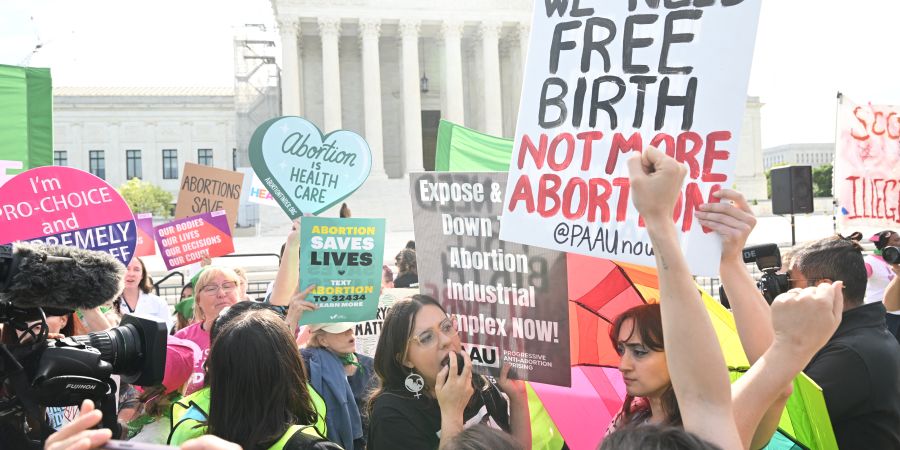Some of the judges challenged Turner on his interpretation and probed him with questions about when abortions would be allowed under Idaho’s law. Justice Elena Kagan argued with Turner about whether EMTALA was clear, claiming “the federal government has plenty to say about [when care must be provided] in this statute.”
Justice Sonia Sotomayor pressed Turner with questions about whether Idaho’s law would permit an abortion in various hypothetical situations. Turner said the law permits an abortion when the life of the mother is threatened, which is based on “the doctor’s good-faith medical judgment” but was repeatedly interrupted when he sought to explain further.
The line of questioning and frequent interruptions provoked the ire of Justice Samuel Alito, who commented that Turner was presented with quick hypotheticals and “asked to provide a snap judgment of what would be appropriate” and “hardly given an opportunity to answer.”
DOJ asserts abortion is covered under EMTALA
U.S. Solicitor General Elizabeth Prelogar, who provided the legal arguments on behalf of the DOJ, said Idaho’s law conflicts with the text of EMTALA, which has real implications for what is “happening on the ground.” She asserted that Turner is “gravely mistaken” in saying that there is no conflict.
“This case is about how [EMTALA] applies to pregnant women in a medical crisis,” Prelogar said.
Prelogar challenged Turner’s interpretation that the DOJ’s position would threaten all state medical regulations, asserting that EMTALA is “textually very narrow.”
According to Prelogar, if abortion is necessary to provide stabilizing care for a woman under the conditions set in EMTALA, “the statute protects her and gives her that choice.” She said the patient must “be offered pregnancy termination [when it is] the necessary treatment.”
Some of the justices challenged Prelogar’s interpretation of the law. Justice Clarence Thomas noted that EMTALA imposes a rule on hospitals as a condition to receive Medicare funding but that the law does not make demands of the state.
“In this case, you are bringing an action against the state, and the state’s not regulated,” Thomas said.
Thomas and other judges noted that EMTALA concerns spending and questioned Prelogar on whether it would preempt a state’s criminal laws.
“Congress has broad power under the spending clause to impose [these rules],” Prelogar responded.
The judges also questioned Prelogar about whether EMTALA respects conscience objections made by doctors and hospitals who have moral objections to providing abortions, and she said those protections are still in place. They also asked her whether a mental health crisis could ever permit an abortion under EMTALA, to which she replied that abortion is “not the accepted standard of practice to treat any mental health emergency.”
